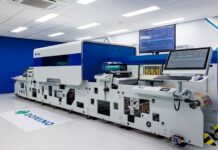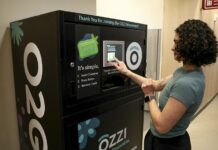Artificial intelligence (AI) is revolutionizing the recycling sector, providing innovative remedies to tackle the intricate issues of waste management. Using AI’s capabilities, recycling procedures can be fine-tuned, waste sorting can be elevated, and recycling rates can increase substantially, ultimately steering us towards a more sustainable future.
Cutting-Edge Waste Sorting:
AI-powered technologies, such as machine learning and computer vision, have completely transformed the domain of waste sorting. Intelligent robots with cameras and sensors can swiftly identify and categorize different materials, encompassing plastics, metals, and paper, with astonishing precision. This not only heightens the efficiency of recycling operations but also diminishes contamination levels, ensuring superior quality of recycled materials.
Predictive Analytics for Recycling Trends:
AI algorithms can sift through extensive datasets to discern recycling trends and patterns, facilitating informed decision-making for stakeholders. By harnessing predictive analytics, recycling facilities can anticipate shifts in demand, optimize collection routes, and allocate resources judiciously. This data-driven approach augments operational efficiency while curbing costs, ultimately contributing to a more sustainable and lucrative recycling industry.
Smart Bin Technology:
AI-enabled smart bins with sensors and cameras can monitor waste levels, detect contamination, and optimize collection schedules. These bins, powered by machine learning algorithms, can glean insights from historical data to make astute predictions regarding waste generation patterns. This proactive approach streamlines waste collection, curtails unnecessary pickups, and enhances resource allocation, reducing costs and minimizing environmental impact.
Automated Quality Control:
AI-driven vision systems can meticulously inspect and appraise the quality of recycled materials with unparalleled precision. These systems excel at identifying impurities, measuring material composition, and spotting defects, ensuring that the recycled products conform to industry standards. By automating quality control processes, AI eliminates human error, amplifies productivity, and instills confidence in recycled materials, fostering trust and stimulating the utilization of recycled products across diverse industries.
Artificial Intelligence in Sorting Technology:
Artificial intelligence is reshaping the recycling industry, particularly in sorting technology. Recycling facilities can achieve efficient and precise waste sorting by leveraging AI-driven algorithms. Intelligent machines with sensors and cameras can rapidly recognize and categorize various materials, including plastics, metals, and paper. This advanced sorting capability elevates recycling rates, reduces contamination, and guarantees the production of higher-quality recycled materials. AI’s capacity to analyze vast datasets facilitates predictive maintenance, optimizing equipment performance, and reducing downtime. With AI leading the way in sorting technology, the recycling industry is poised for substantial advancements, paving the path toward a more sustainable future.
Augmented Recycling Education and Awareness:
AI can assume a pivotal role in educating the public about recycling practices. Chatbots and virtual assistants, driven by AI, can offer real-time guidance on waste disposal, recycling guidelines, and collection schedules. By engaging with individuals through personalized interactions, AI-powered platforms can bolster awareness, advocate recycling behaviors, and facilitate proper waste management at the consumer level.
Artificial intelligence is a transformative force in the recycling industry, presenting unprecedented opportunities to optimize waste sorting, enhance operational efficiency, and elevate recycling rates. By embracing AI-driven solutions, we can usher in a circular economy where waste evolves into a valuable resource, nurturing a sustainable and greener future for future generations.



























